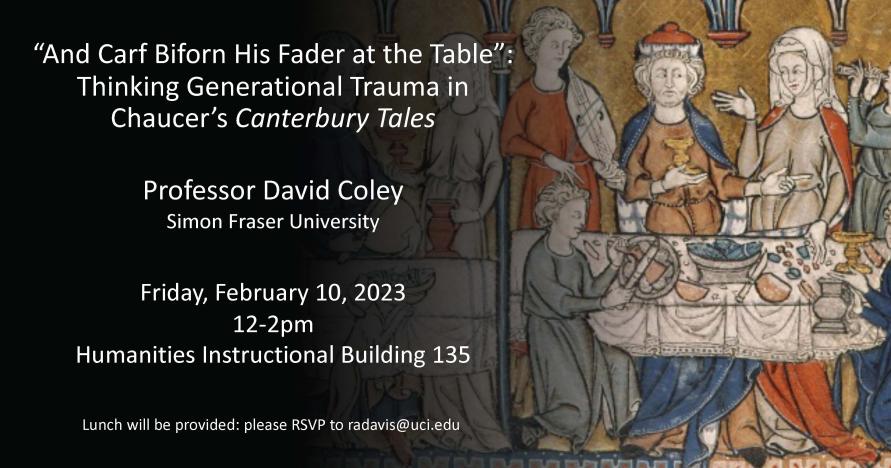
Building on his previous work on plague in fourteenth-century English poetry, Professor Coley's talk examines how we might account for traumatic responses that aren’t to immediate ruptures, as in the standard model, but to events, like the Black Plague, that last for generations and become naturalized into the lives of those living through them. Professor Coley's focus here is the relationship between father and son in the paired narratives of Chaucer's Knight and Squire. In a novel interpretation, he reads the Squire's Tale as an attempt to make sense of the trauma of his father. His approach resonates with work that’s being done now on intergenerational trauma, on the way children of traumatized parents interrogate / inherit / reembody the suffering of their parents and that trauma becomes not only responsive but embedded.
David Coley is Professor of English at Simon Fraser University, where he teaches courses in medieval English language and literature and co-produces a podcast called “The Canterbury Fails.” His most recent book, Death and the Pearl Maiden: Plague, Poetry, England (Ohio State, 2019), was awarded the 2020 Margaret Wade Labarge Prize for best book in medieval studies by the Canadian Society of Medievalists. The book considers submerged discourses of plague in fourteenth-century English poetry, especially the poems of the Gawain-poet. His work has been published widely in journals including Studies in the Age of Chaucer, The Chaucer Review and Exemplaria, as well as several edited volumes, including The Cambridge Companion to the Canterbury Tales and Premodern Ecologies in the Modern Literary Imagination.
This talk is co-sponsored by the UCI Humanities Center, the Center for Early Cultures, the Medical Humanities Center, and the Departments of English and European Languages and Studies.
